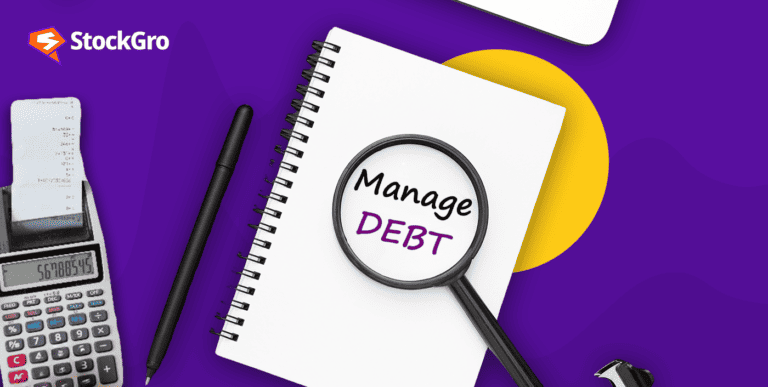
The key to financial literacy is understanding how to properly manage your money—not simply how to earn it. Building a solid financial foundation is the cornerstone of financial literacy and is essential for long-term security and mental peace.
It is not about building wealth but understanding how to manage what you do have. At the heart of this foundation are two key components: an emergency fund and regular savings. Read on for personal finance tips that can boost your money management.
You may also like: What is personal finance, and why is it important?
Emergency fund and its significance
An emergency fund serves as a layer of protection for your finances in case of unforeseen events. This could be anything from a sudden job loss or a medical emergency not covered by insurance to unplanned travel or home repairs. In essence, it’s a buffer to shield you from unexpected financial setbacks.
Did you know that 75% of Indians do not have an emergency fund, per a survey? This means that a majority of people in India are not financially prepared to handle unexpected expenses or emergencies. Without this financial cushion, any unforeseen expense might cause serious stress and monetary strain . An emergency fund ensures that when faced with a financial emergency, you are not left scrambling to cover expenses, potentially leading to debt or financial instability. In short, an emergency fund is your first line of defence against life’s unpredictable financial challenges.
How to build an emergency fund?
- Determine the size of your emergency fund: Ideally, your emergency fund should cover six to nine months of expenses. Calculate your monthly outgoings, including rent, groceries, children’s school fees, EMIs, and insurance premiums. To make things easier, you may calculate the expenses using online calculators. Multiply this by six or nine to get your target amount. For example, if your monthly expenses are ₹20,000, aim for an emergency fund between ₹120,000 to ₹180,000.
- Choose a safe place to save: Maintaining a clear split between your normal accounts and your emergency fund is necessary. Here are a few choices:
- Traditional bank account: Easy to access, but requires discipline not to dip into it for non-emergencies. Consider opening a separate account just for these funds.
- Recurring deposits (RD): Offer a little higher interest rate but incur early withdrawal charges.
- Fixed deposits (FD): Good for lump-sum investments, though interest is taxable, and there’s a penalty for early withdrawal.
- Mutual funds: Low-risk debt funds that are easily liquid. They usually offer better returns than a savings account.
- Start small and work your way up: To get started, put aside a little monthly sum that is doable. Even saving a little, like ₹100 a month, can add up over time.
- Automate your savings: Treat your emergency fund contribution like a regular expense. Set up a monthly automatic transfer to the emergency fund from your banking account. This ensures consistent saving without having to think about it each time.
- Use the fund only for emergencies: Recognise what makes up an emergency and avoid dipping into these funds for non-emergency costs.
- Reload the fund if used: If you have to use money from the fund, prioritise rebuilding it as soon as possible.
The role of savings in financial health
Savings form an essential part of financial health, serving as a foundation for financial preparedness and peace of mind. They enable financial independence, allowing you to live life on your own terms and comfortably withstand unforeseen circumstances. With sufficient savings, you can take calculated risks, like starting a new business or exploring different career paths, without immediate financial pressure.
Additionally, savings contribute to long-term stability through the power of compound interest, where your money grows not only from your contributions but also from accumulated interest. Your investments will appreciate over time thanks to this growth, which helps them outpace inflation.
Also read: The role of compound interest to reach your financial goals
Effective saving strategies
A sound savings plan is essential for maintaining financial stability. The following are some practical methods to increase your savings:
- Set a savings target: Having a clear savings goal for the year encourages you to save consistently. Regular savings of even modest sums can build up over time.
- Create a monthly budget: Planning your expenses at the start of each month can help you save more effectively. Set spending limits to avoid overspending and stick to your savings goals.
- Track your spending: It might be eye-opening to see exactly where your money is going each month. Identify non-essential expenses and cut back on them to boost your savings.
- Ensure adequate insurance coverage: Emergencies can strike unexpectedly, impacting your earnings and savings. Having suitable insurance coverage, like health and life insurance, can protect you from unforeseen expenses.
- Invest in long-term financial tools: To ensure your savings not only remain safe but also grow, consider investing in long-term investment plans. These can offer attractive interest rates and help your money outpace inflation.
- Use credit cards sparingly: Although credit cards may seem attractive, their exorbitant interest rates will quickly deplete your money. To maintain and increase your funds, try to use credit cards as little as possible.
You may also like: Tax saving scheme in India 2023 [Explained]
Bottomline
Building a strong financial foundation through a well-planned emergency fund and strategic savings is essential for long-term stability and peace of mind. By understanding the importance of an emergency fund, you can protect yourself from life’s financial uncertainties and avoid the stress that comes with unplanned expenses.
Furthermore, implementing sensible investment and saving strategies protects your future as well as your present. It empowers you to live life on your terms, take calculated risks, and enjoy the benefits of financial independence.
